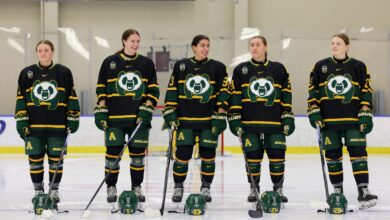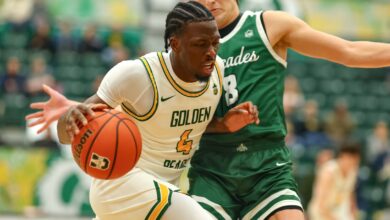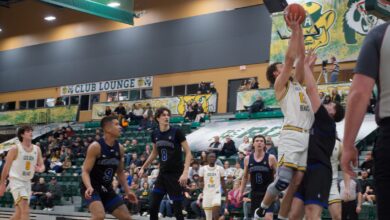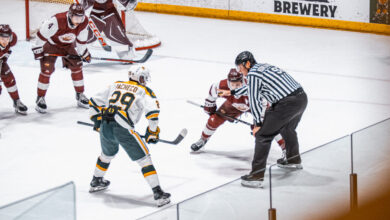Pandas volleyball trains with Japanese students
"I think it's had a huge impact on our program, because we've adopted a lot of the philosophies," Laurie Eisler says.
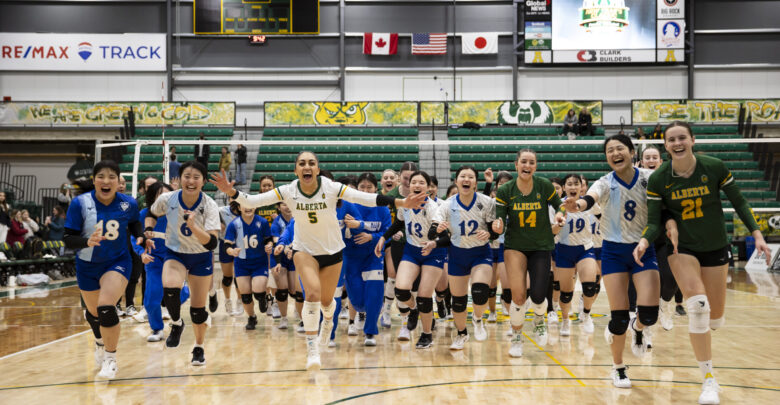 Golden Bears and Pandas Athletics
Golden Bears and Pandas AthleticsSure, they’re easily eight inches shorter than the University of Alberta Pandas volleyball players, and yes, they play a less physical game, but the Kanoya Japanese volleyball team have given the Pandas an edge to their training.
They’ve helped the group adapt to a type of competition not seen in Canada West, and they’re the only ones doing this.
“Fraser Valley went to Japan a couple summers ago, and Saskatchewan still has a little bit of a relationship. They haven’t hosted teams as much, it’s not a regular part of their program as it is for us,” Laure Eisler, former head coach for the Pandas and current general manager, said.
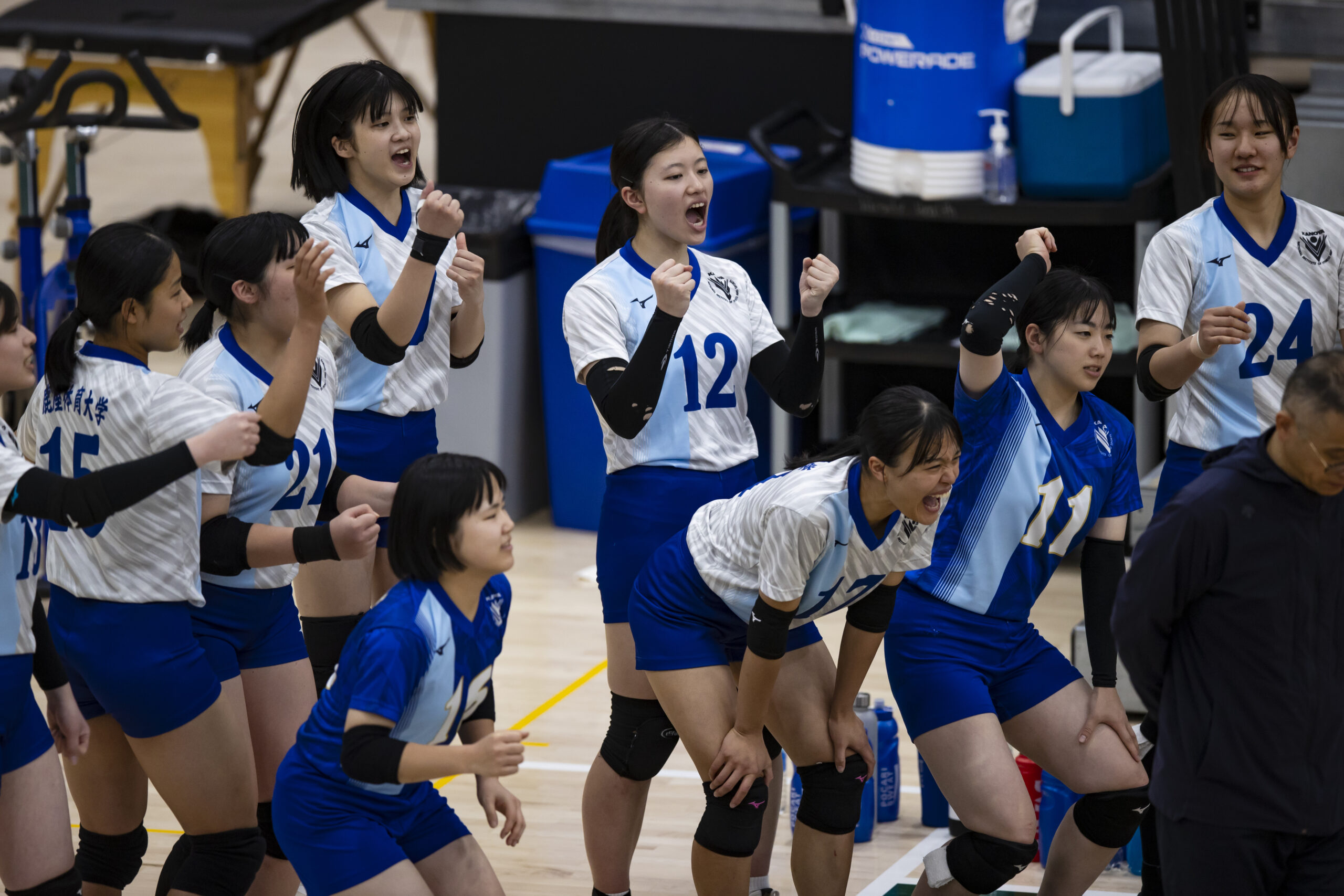
Ironically, it was the University of Saskatchewan Huskies that started this relationship, which carried over to the U of A after Eisler left the Huskies to coach the Pandas.
“The volleyball cultures are very different. And I think it’s had a huge impact on our program, because we’ve adopted a lot of the philosophies.”
New team, new technique, different play at New Year’s Classic
These philosophies have forced the Pandas to become a better, quicker, but still aggressive team.
This was on full display at the Pandas New Year’s Classic, and, fingers-crossed, will be at the Canada West play-offs — the ultimate test for university volleyball in Canada.
“They love the game, and it’s infectious. And just a commitment to the technique that you can’t really be a great, volatile player unless you’re good at the skills. And that takes time and lot of hard work, and you can see the result of it,” Eisler said.
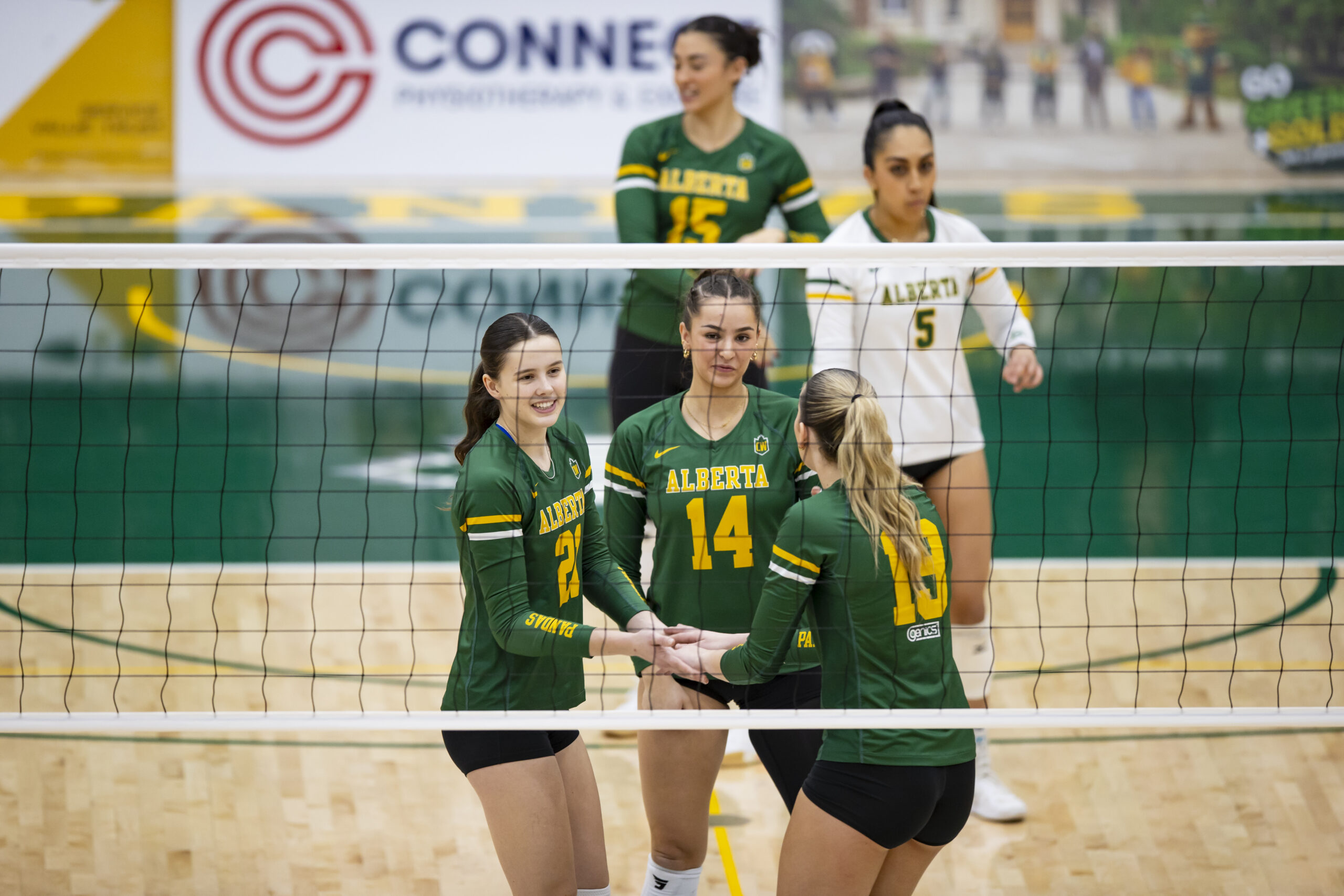
The “result,” was Kanoya leading the Pandas 2-0 heading into the third set on January 4, only to lose 3-2 in a tie-breaking fifth.
“We’re much bigger physically, yes, but they are textbook examples of how to play the game at a technical level. Our physicality didn’t become a factor until we adapted our game to fit what they were doing,” Eisler said.
When the Pandas adapted their play by applying that textbook style with the sheer size of their team, they simply showed more “grit.”
Adapting goes two ways, or maybe not
“There’s just not many free points, so you have to earn everything you’re gonna get,” Carolyn O’Dwyer, current head coach for the Pandas, said.
But if the Pandas have to adapt to a new style, so do the Kanoya players. Mentally, this makes the game a lot easier. Physically, there are more differences.
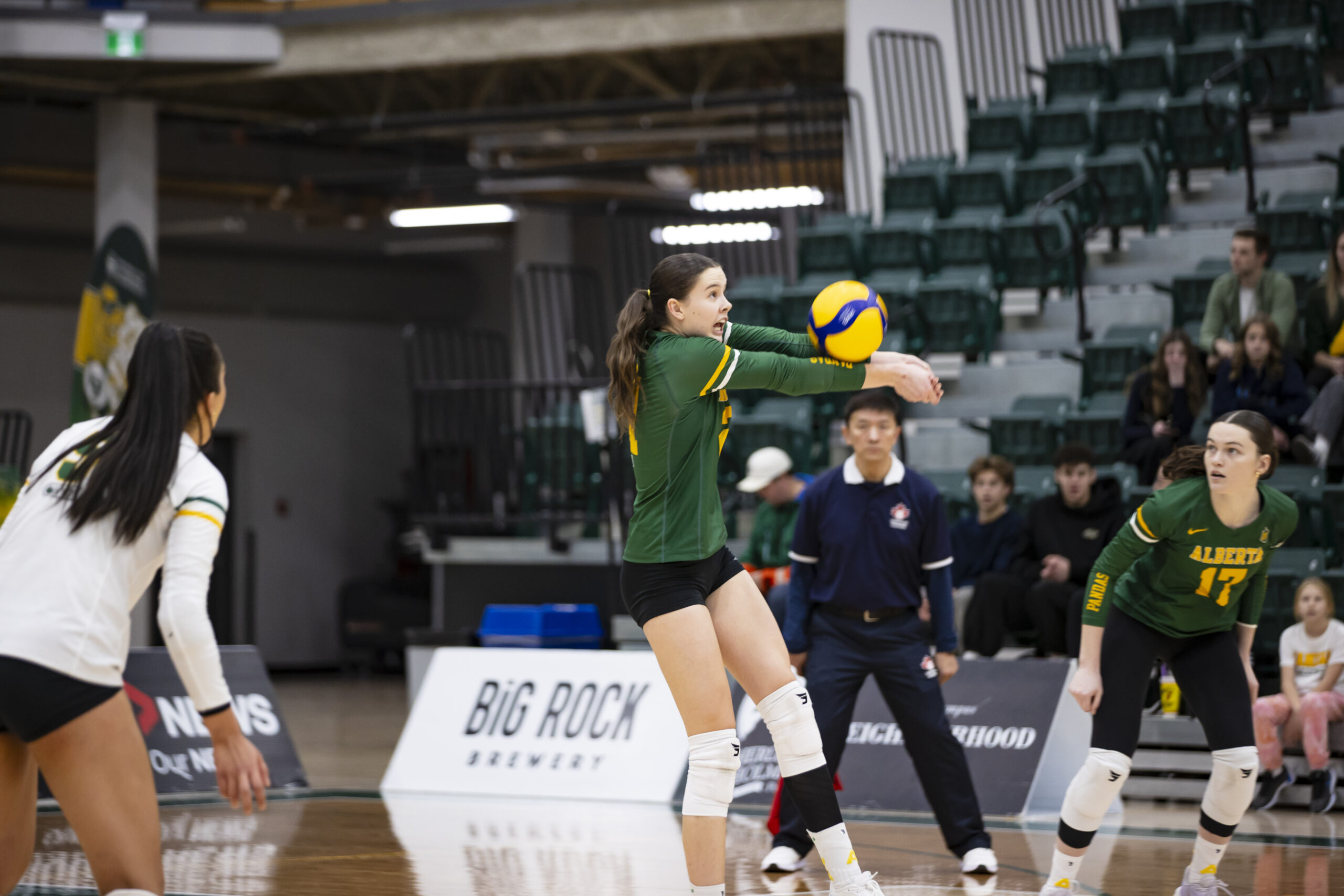
In that third set, it was easy for the Pandas to say, “sure, we have to be more textbook.” Then suddenly, the game changed in their favour. A disproportionate result of this is that the Pandas can make technical differences, but the Kanoya players can’t get taller — a real factor in why the Pandas won.
Of course, these differences were obvious back in August, when the Pandas trained with them in Japan.
The Pandas pre-season competition in Japan
“It was incredible for our team to just be able to compete at a really high level before we even started season play. Seeing that just really helped make our team grow in such a short amount of time,” O’Dwyer said.
Aside from growth, the trip was great for team dynamics and a direct factor in pre-season team building. Now that it’s conference play, the Pandas are billeting the Kanoya players while they train here.
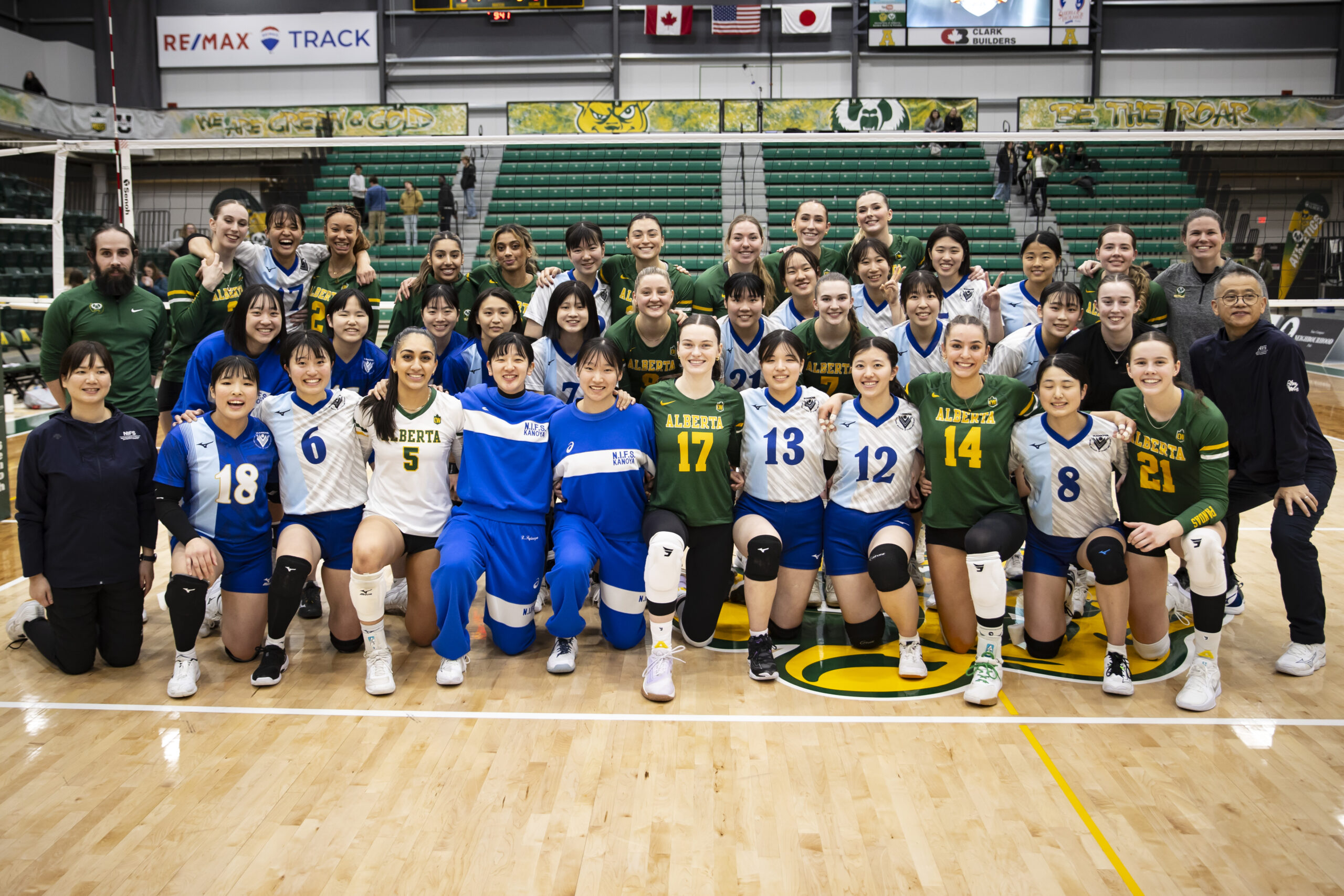
“I was super excited to billet some of those students. I didn’t get a chance to go to Japan, so I hadn’t met them before. So it’s really nice to have some of them at my house and get to know them,” Abby Guezen said.

